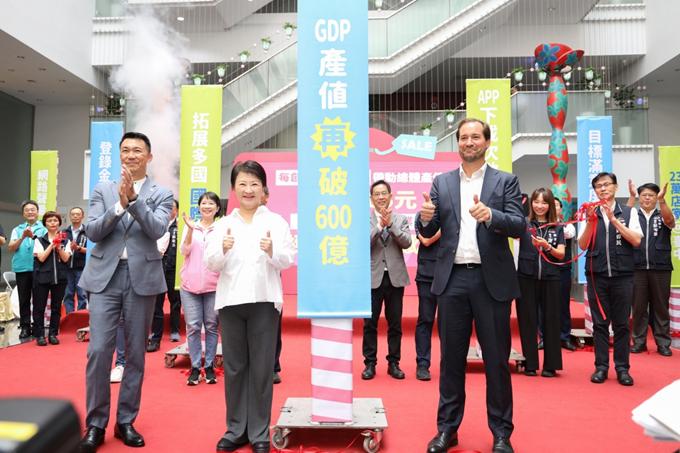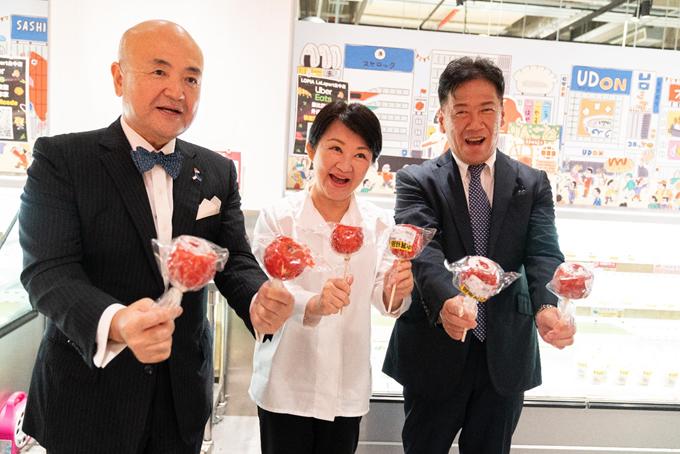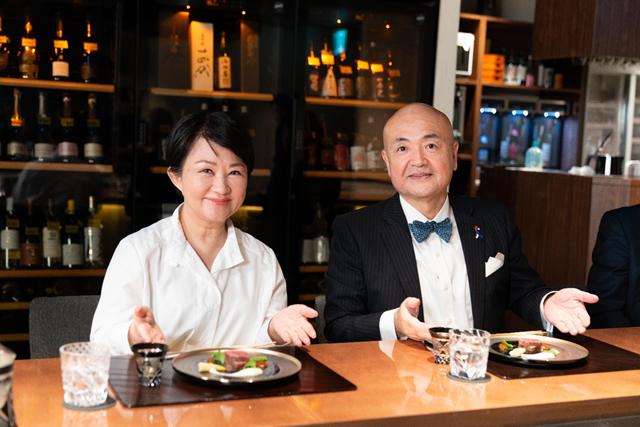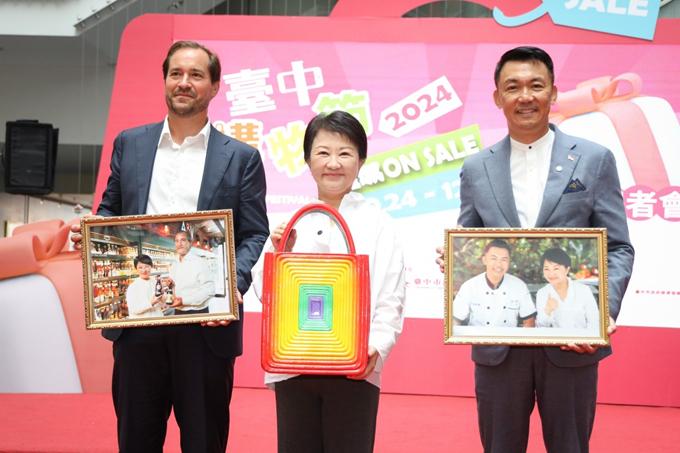The 2024 Taichung Shopping Festival had achieved outstanding results, generating a total registered spending amount of NT$35.3 billion. The Taichung Pass (TCPASS) app has surpassed 2.8 million downloads, with over 1.65 million registered members. The festival attracted international participation from over 40 countries, including Malaysia, Mainland China, Hong Kong, Vietnam, Japan, Indonesia, the United States, Andorra, Macau, and the Philippines, with a total of 2,784 foreign travelers registering their purchases, amounting to more than NT$43 million. This reflects Taichung’s appeal as a global city.
Foreign Traveler Participation and Spending Rankings

Photo: Economic Development Bureau, Taichung City Government
According to Taichung City Government's Economic Development Bureau (EDB) Director, Chang Feng-Yuan, the event app was integrated into the TCPASS in 2022 (the 4th edition), introducing data analytics features. Since 2024, nationality has been a mandatory field during registration. The statistics reveal that 2,784 foreign travelers participated this year, with the top three countries being:

Photo: Economic Development Bureau, Taichung City Government
1. Malaysia – 633 participants
2. Mainland China – 434 participants
3. Hong Kong – 403 participants

Photo: Economic Development Bureau, Taichung City Government
Other notable participant numbers include Vietnam (250), Japan (182), Indonesia (152), the United States (63), Andorra (59), Macau (54), and the Philippines (46).
In terms of registered spending, the top three nationalities were:

Photo: Economic Development Bureau, Taichung City Government
1. Mainland China – NT$11.51 million
2. Hong Kong – NT$8.96 million
3. Malaysia – NT$8.83 million
Other countries, including the United States, Japan, Vietnam, and Indonesia, also recorded over NT$1 million in spending.
Key Marketing Strategies for International Growth
Director Chang highlighted three major marketing strategies that contributed to the festival's success:
1. International Video Marketing:
Collaborated with representatives from Japan, Korea, and the United States in Taiwan to film promotional videos.
Each video garnered over 250,000 views online.
2. Expanded Global Promotion:
Widely disseminated festival-related content through international English-language media platforms.
Reached 47 countries, including Singapore, Australia, and New Zealand.
Promoted the festival to over 500 hotels across Asia.
3. Multilingual App Interface:
The event app now supports Chinese, English, Japanese, and Korean, making it easier for foreign visitors to participate.
Boosting Taichung's Tourism and Economy
According to Tourism Administration, Ministry of Transportation and Communications, during the festival period, Taichung saw an influx of foreign visitors, with the top three source regions being:
1. Hong Kong – 24,954 visitors
2. Vietnam – 9,900 visitors
3. South Korea – 9,618 visitors
This surge in international tourism has significantly contributed to Taichung’s local economy and tourism industry.
Future Plans: Strengthening Taichung's International Presence
The Economic Development Bureau expressed gratitude for the enthusiastic participation of travelers from over 40 countries. Moving forward, the Taichung City Government will continue to prioritize international marketing, enhance the festival’s global reach, and attract even more international visitors to experience the unique charm of Taichung.
Advertorial by Economic Development Bureau, Taichung City Government

UNCERTAINTY: Innolux activated a stringent supply chain management mechanism, as it did during the COVID-19 pandemic, to ensure optimal inventory levels for customers Flat-panel display makers AUO Corp (友達) and Innolux Corp (群創) yesterday said that about 12 to 20 percent of their display business is at risk of potential US tariffs and that they would relocate production or shipment destinations to mitigate the levies’ effects. US tariffs would have a direct impact of US$200 million on AUO’s revenue, company chairman Paul Peng (彭雙浪) told reporters on the sidelines of the Touch Taiwan trade show in Taipei yesterday. That would make up about 12 percent of the company’s overall revenue. To cope with the tariff uncertainty, AUO plans to allocate its production to manufacturing facilities in

Taiwan will prioritize the development of silicon photonics by taking advantage of its strength in the semiconductor industry to build another shield to protect the local economy, National Development Council (NDC) Minister Paul Liu (劉鏡清) said yesterday. Speaking at a meeting of the legislature’s Economics Committee, Liu said Taiwan already has the artificial intelligence (AI) industry as a shield, after the semiconductor industry, to safeguard the country, and is looking at new unique fields to build more economic shields. While Taiwan will further strengthen its existing shields, over the longer term, the country is determined to focus on such potential segments as

COLLABORATION: Given Taiwan’s key position in global supply chains, the US firm is discussing strategies with local partners and clients to deal with global uncertainties Advanced Micro Devices Inc (AMD) yesterday said it is meeting with local ecosystem partners, including Taiwan Semiconductor Manufacturing Co (TSMC, 台積電), to discuss strategies, including long-term manufacturing, to navigate uncertainties such as US tariffs, as Taiwan occupies an important position in global supply chains. AMD chief executive officer Lisa Su (蘇姿丰) told reporters that Taiwan is an important part of the chip designer’s ecosystem and she is discussing with partners and customers in Taiwan to forge strong collaborations on different areas during this critical period. AMD has just become the first artificial-intelligence (AI) server chip customer of TSMC to utilize its advanced

While China’s leaders use their economic and political might to fight US President Donald Trump’s trade war “to the end,” its army of social media soldiers are embarking on a more humorous campaign online. Trump’s tariff blitz has seen Washington and Beijing impose eye-watering duties on imports from the other, fanning a standoff between the economic superpowers that has sparked global recession fears and sent markets into a tailspin. Trump says his policy is a response to years of being “ripped off” by other countries and aims to bring manufacturing to the US, forcing companies to employ US workers. However, China’s online warriors